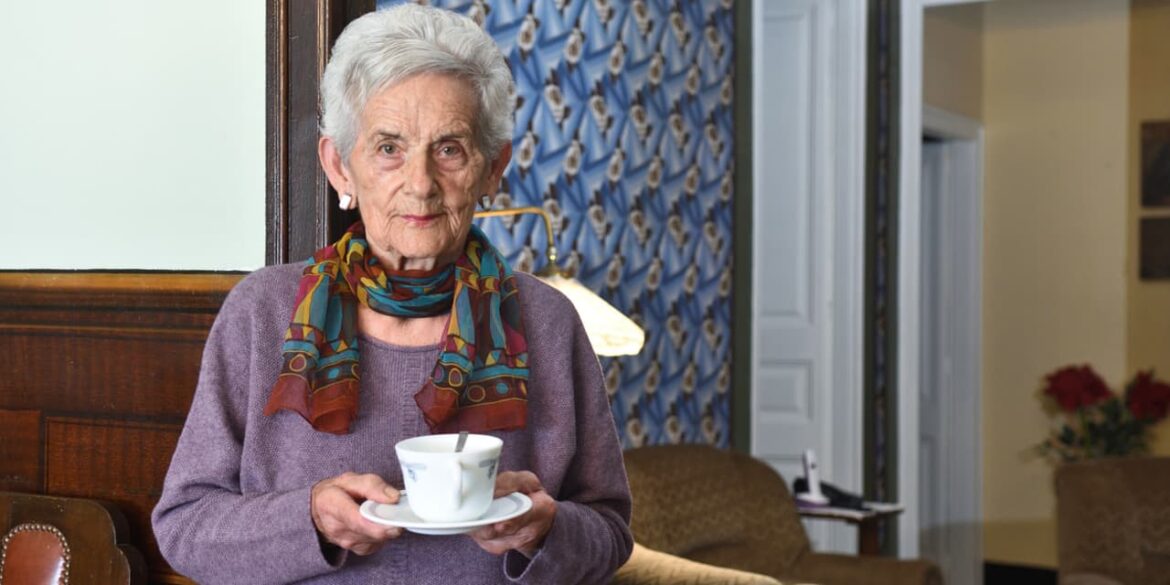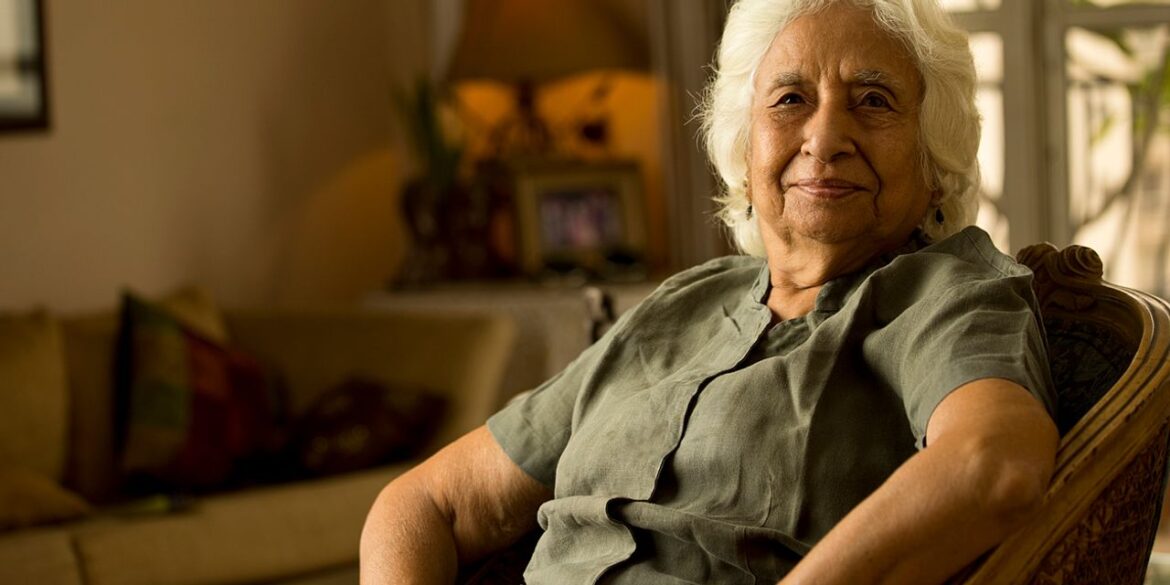
“My brother is named executor, and he also has the sign-in passwords to all our father’s investment accounts.”
Source link
brother
My brother lives in our parents’ home, which we’ll inherit 50/50. I want to keep it in the family for my children. How do I protect my interests?
Dear Quentin,
Per our parents’ will, my brother and I will split their inheritance 50/50. This includes the family house. I would like to keep the house in the family for my children, as I bought my current home nearby to be able to care for my parents as they aged.
I understand the best time to sell a home is soon after inheriting it, to avoid capital-gains tax. The issue is that my brother is single and currently living in the house, and he may not want to sell his portion right away. I would be happy to let him live in the house that we jointly own.
I worry that he may decide to sell his half and I’ll have to take a financial hit, or that he’ll get married and live in the home with his family, which may complicate matters. How do I ensure my interests in the home are protected while making sure I do right by my brother?
Thank you so much.
Complicated Matters

“If due to financial or familial reasons you did flip a coin, agree that the end result is the right result, whether either of you likes it or not: Heads you win. Tails you win.”
MarketWatch illustration
Dear Complicated,
Your last question is both a good one and rhetorical. Your interests are already protected: You are entitled to 50% of this home, not 100%, as you rightly suggest. Inheriting a property with a single sibling who does not have children does not automatically entitle the sibling with children to full ownership, and/or obligate that sibling to sell their share to you. Real-estate inheritances can cause discord among siblings. Not everyone understands this, as you apparently do.
You can do right by your brother by asking him what he wants, too. This appears to be the only home he has known, and one could argue that he has an equal — or even 50.1% — right to buy you out, given that you live elsewhere with your family. If he wishes to continue living there, it would be generous and compassionate of you to allow him to do so. Many siblings would insist on cashing out and filing a quitclaim to turf their sibling out of the family home.
You’re correct in that the house will be passed down to you through a “step-up in basis” valued at the current value, not the purchase price, which reduces your capital gains tax if/when you sell. If the house was sold for $1 million, even though it was originally purchased for $500,000, you and your brother would have to pay capital gains tax on $500,000, if you decided to sell, you would pay long-term capital gains on the appreciation post-inheritance.
Rite-of-passage scenario
There is, however, no definitive right or wrong path on your familial dilemma, except that you both navigate the process with transparency and respect. If he has lived in the house his entire life, and gets married and has kids, it seems reasonable to maintain the status quo — that is, he continues to live there — but with one proviso: He buys you out. You could ask him to do that anyway, but if he can’t afford to, he is relying on your generosity.
In the grand scheme of things, this is a normal rite-of-passage sibling scenario. I have received letters from people whose siblings “borrow” hundreds of thousands of dollars from their parents with no intention of ever repaying them; siblings who hid their father’s will; and parents who were possibly coerced into putting their son’s name on the family home, much to the surprise and consternation of the other family members. The list goes on.
What now? Scenario No. 1: He lives there as a single man, and you don’t ask him to buy you out. That’s pretty decent of you, all things considered — though you are entitled to change your mind, buy him out or ask him to downsize. Scenario No. 2: He starts a family and lives there, and you ask him to buy you out. If he does not have the money, you either sell or you buy him out. That’s fair. Scenario No. 3: You both have families, and the money to buy each other out. You flip a coin.
Oftentimes, leaving our egos and fears and wants aside is the better option. Trying to make a case why we deserve something more than the next person — a bad case of the old “do-re-mi-me-me-me-me” — can lead to more resentment and one-upmanship. It’s not likely to end well. If due to financial or familial reasons you did flip a coin, agree that the end result is the right result, whether either of you likes it or not: Heads you win. Tails you win.
This house should never be more important than your relationship.
You can email The Moneyist with any financial and ethical questions at qfottrell@marketwatch.com, and follow Quentin Fottrell on X, the platform formerly known as Twitter.
Check out the Moneyist private Facebook group, where we look for answers to life’s thorniest money issues. Post your questions, tell me what you want to know more about, or weigh in on the latest Moneyist columns.
The Moneyist regrets he cannot reply to questions individually.
Previous columns by Quentin Fottrell:
My parents want to pay off my $200,000 mortgage, and move into my rental. They say I’ll owe my sister $100,000. Is this fair?
‘I hate the 9-to-5 grind’: I want more time with my newborn son. Should I give up my job and dip into my six-figure trust fund?
‘I didn’t see how this could happen’: My brother drained $200K from my mother’s savings
I read and hear so much about adult siblings who always got along, but suddenly start fighting among themselves when they are about to inherit their parents’ estate. I didn’t see how this could happen to my family — until now. We’re not at that point, but things are getting tense.
I am the middle child of three. My older sister and I are in our 70s, and my brother is in his early 60s. Our parents were not wealthy, but they were able to sell their farm 10 years ago, and the proceeds have enabled them to comfortably cover all medical, assisted-living and long-term-care costs.
Our parents always told the three of us that they never wanted to be a financial burden to us kids, and that they wanted whatever might remain when they died to be divided among us equally. Their wills indicate that. Dad has since died, and Mom is at a very advanced age.
All three of us are married, and none of us has any children or heirs. I am retired and debt-free. My sister is in a similar situation. Neither of us is wealthy, but we feel financially secure.
My brother’s financial problems
We don’t discuss our personal financial details with one another, so I was shocked to learn about my brother’s situation. Five years ago, he was laid off from his job. It was just one of those corporate moves, and not anything performance-related.
The worst part is that he was in no hurry to get another job. He was very picky about location, salary and similarity to the type of work he had previously done — always holding out to get exactly what he wanted, and unwilling to settle for less.
He would not even consider a lower-paying job temporarily just to pay the bills, or one that might require relocation or a longer commute. In time, he became “long-term unemployed,” so it was even harder to be considered for a job. This went on and on.
After a few months, he started asking our mother for cash — large sums, $10,000 at a time, repeatedly. I manage my mother’s finances, but I have always treated it as her money and not mine to spend or control. If she wants to give him money, she gives him money.
In total, my mother gave my brother $200,000
While I have advised her that these gifts are not wise, she says she just wants to help him. To date, she has given him nearly $200,000. She did agree to pause this when I informed her that if she did not, she would at some point run out of money for her own needs.
He is now broke, deeper in debt than ever and still out of a job. All the money she has given him is gone. It’s clear to me he is in a terrible financial situation and is hoping his inheritance will bail him out.
The thing is, there won’t be much inheritance for anyone, at the rate he’s going. He has owned his home for 32 years, but he has a current mortgage balance of more than triple his purchase price. His credit-card debt is astonishingly high. He has emptied his retirement account.
He had a six-figure salary, but he has been out of work four of the past five years, and this only tops off the fact that he has been living beyond his means for many years. While he doesn’t have a drug or alcohol or gambling addiction, it seems he has a spending or lifestyle addiction.
Taking advantage of our mother’s sympathy
I love my brother and I do want what is best for him, but I fear the financial hole he has gotten himself into is so deep he will never recover, let alone have any kind of retirement. In the meantime, he has taken advantage of our mother’s sympathy and financial resources.
This is where it gets sticky. My mother likely won’t live much longer. Am I being selfish to expect a third of what would have remained had my brother not taken all this cash from her? Technically, he didn’t steal it, since she gave it to him.
I don’t really need that inheritance, as I’ve lived my life without the expectation of inheriting anything. But my sister and I feel that we’re being cheated out of something just because we’ve managed our finances responsibly.
At one point several years ago, we three kids discussed this and agreed that we would just reconcile the gift giving when settling our mother’s estate, and just count what he has already received as part of his inheritance. This is not specified in her will.
Is there any way to patch up this situation before it goes off the rails?
Concerned Sister and Daughter
Also see: ‘Low-paying jobs are the economy’s way of saying you should get a better job’: I’ve decided to stop tipping, except at restaurants. Am I wrong?

“You need a wake-up call as a family. The time for standing by and ‘normalizing’ his behavior by complaining about it after the fact is over.”
MarketWatch illustration
Dear Concerned,
It has already gone off the rails.
It’s time to spend less time thinking about your brother’s financial situation and his reasons for doing what he does — which could be related to a family dynamic that is hard to break — and more time focusing on your mother’s long-term-care needs and finances, and how long the money will last.
Your brother will continue to put his priorities first. He is a master manipulator, whether or not he recognizes it in himself and whether or not he has malicious intent, so your mother needs to see her assets in their entirety and an illustration of what percentage has been given and now spent.
You need a wake-up call as a family. The time for standing by and normalizing his behavior by complaining about it after the fact is over. Arranging a family meeting with an attorney, and putting your mother’s finances on paper, is a start. How much money has she set aside for an emergency fund?
Undue influence, duress or pressure on an individual who lacks mental capacity could constitute elder abuse. First, it’s a favor here and a favor there — a little money to tide a sibling over; a tale that pulls at the heartstrings. Next, it’s large checks, clothing, jewelry and expensive artworks.
Writing a will that takes this $200,000 into account
Another lesson for your mother (and everyone else): A will should be updated every year or two, and your mother’s attorney and/or whoever has power of attorney should advise her to deduct the $200,000 she has given to your brother from his remaining inheritance.
There are several reasons: The money he has been given is now gone, so there is no point in throwing good money after bad; enabling your brother by giving him preferential treatment has only led to more requests; and it’s fair and equitable to treat these gifts as inheritance.
As your mother grows more frail and vulnerable, your brother may see her bank account as a last-chance saloon to bolster his dwindling finances. One of the hallmarks of elder financial abuse is isolation, but you can help prevent this with some simple measures.
If your mother has at-home caregivers, you can ask them to keep you in the loop on visits or requests by family members, and you can — and probably should — add yourself as a cosigner on your mother’s bank accounts so your brother will need to go through you for future requests.
Financial elder abuse is vastly underreported
The National Center on Elder Abuse, a government agency affiliated with the U.S. Administration on Aging, and the nonprofit National Adult Protective Services Association both have resources that can guide you through the steps for reporting any alleged abuse.
Given the amount of money involved, this situation could get worse before it gets better. Elder abuse affects an estimated 5 million Americans annually, according to the National Council on Aging, and multiple agencies say that number is both increasing and underreported.
Studies show that seniors lose $2.6 billion a year due to elder financial abuse — and possibly a lot more, according to one estimate that only one in 44 cases is actually reported. NAPSA says victims of elder abuse are three times more likely to die compared with non-victims.
Elder abuse can happen slowly and with great manipulation. Your mother could be under some kind of undue influence or duress, even if she doesn’t see it that way herself. The fact that it’s been going on for so long, and has led to her giving away such a large amount of money, is concerning.
Start the ball rolling on that family meeting.
More from Quentin Fottrell:
I want my brother to inherit my estate. I’ve three other siblings. Do I need an attorney? What could go wrong?
I don’t want to leave my financially irresponsible daughter my house. Is that unreasonable?
My father has dementia and ‘forgave’ my brother’s $200,000 house loan. The nursing-home notary said he was of sound mind. What can we do?
You can email The Moneyist with any financial and ethical questions at qfottrell@marketwatch.com, and follow Quentin Fottrell on X, the platform formerly known as Twitter. The Moneyist regrets he cannot reply to questions individually.
Check out the Moneyist private Facebook group, where we look for answers to life’s thorniest money issues. Readers write to me with all sorts of dilemmas. Post your questions, or weigh in on the latest Moneyist columns.
By emailing your questions to the Moneyist or posting your dilemmas on the Moneyist Facebook group, you agree to have them published anonymously on MarketWatch.
By submitting your story to Dow Jones & Co., the publisher of MarketWatch, you understand and agree that we may use your story, or versions of it, in all media and platforms, including via third parties.
I want my brother to inherit my estate. I’ve three other siblings. Do I need an attorney? What could go wrong?
Dear Quentin,
I am in my 60s — a widow with no kids, but a big extended family. I own my own house and car. I have a couple of investment accounts, a savings account and a pension. I have listed one of my brothers as beneficiary for all of my assets.
What can I do to make it easier for my brother to settle my estate…
Master your money.
Subscribe to MarketWatch.
Get this article and all of MarketWatch.
Access from any device. Anywhere. Anytime.
Already a subscriber?
Log In
My brother put our names on our elderly mom’s home. Is this a terrible mistake?
Dear Quentin,
My mother is 88. My brother put both our names on her home deed. The house is paid for and we all live in Tennessee. I think he thought it would protect her assets, but won’t this cause a tax problem for us when she dies?
The home is paid for in full, and she purchased it around 1995. Our mother is a very healthy 88-year-old, so she has no foreseeable issues going into a nursing home. We don’t want to jeopardize her Medicare or Medicaid. Have we made a terrible mistake?
Concerned Son

“There are other ways adult children can set up the transfer of a parent’s home.”
MarketWatch illustration
Dear Son,
If you and your brother are on the deed of your mother’s house when she dies, you will likely be responsible for capital gains tax on the house after your mother dies and when you go to sell. It would mean you will not avail of a “step-up in-basis” on capital gains taxes.
With a step-up in-basis, the profit on any sale would be calculated as the sale price minus the recent appraised/market price of the home — not the purchase price. In other words, the tax is based on the property’s fair market value when their benefactor died.
Here’s an example: If the house was bought for $500,000 and worth $1 million, you would pay capital gains on the difference between $1 million and the sale price — and not on the original price paid for the property by your parents.
Obviously, consult a trusts and estates attorney before making any further decisions. A qualified attorney can help you make sense of how complicated calculating a basis can get, such as if there were improvements made prior to the addition of your names on the deed, or if adding your names was considered a gift. You have one thing in your favor: in these circumstances, elderly parents are sometimes cajoled to sign over their home, and risk being evicted when they do so. That is not the situation here.
There are other ways adult children can set up the transfer of a parent’s home. A transfer-on-death deed would also be cheaper than setting up a trust, which can be expensive and complicated, and would supersede any previous lost-and-found will made by your parents.
Medicaid eligibility
Medicare is a federal program that provides health coverage if you are 65 and over. Medicaid, on the other hand, provides health coverage for those who have a very low income. Medicare does not cover long-term care costs such as a nursing home.
Some people think that they should sell their elderly parent’s home, but this should not be done without legal advice. Selling a home can disqualify an individual from Medicaid, due to the parent in question having excess assets.
What’s more, most states have a five-year look-back period on maneuvers people make with their finances for such purposes. So it’s difficult to “game the system” to ensure a parent does not have too many assets.
As such, there would need to be a five-year grace period in most states between setting up such a trust and filing for Medicaid coverage, if you were to put your mother’s assets in a trust. But it would all depend on the rules and limits in your particular state.
In 49 U.S. states and Washington, D.C., the look-back period is 60 months; in California, it’s 30 months. Even if a Medicaid beneficiary has a windfall or an inheritance, and gives the money away, they are in violation of the look-back rule, the American Council on Aging says.
Think twice before making such big decisions, and always seek out legal counsel.
Readers write to me with all sorts of dilemmas.
By emailing your questions, you agree to have them published anonymously on MarketWatch. By submitting your story to Dow Jones & Co., the publisher of MarketWatch, you understand and agree that we may use your story, or versions of it, in all media and platforms, including via third parties.
The Moneyist regrets he cannot reply to questions individually.
More from Quentin Fottrell:
‘I just don’t have a clue where to start’: Where should I invest my $50,000 life savings right now?
‘She says it’s not fair’: My wife will retire at 62, and I’ll be ready at 59. We have $5 million. Am I being lazy?
‘Is my husband the cheapest man in America?’ We only eat out on our anniversary, and I don’t even have an engagement ring.
My brother is a combat veteran with PTSD. How do I help him invest his savings?
My brother is a combat veteran who struggles with complex post-traumatic stress disorder (C-PTSD). He has a 100% permanent disability rating, and receives a monthly payment from the government. He also received a modest amount of back pay, but spent most of it getting caught up on rent and bills.
At this point there are only a few thousand dollars left. The monthly stipend is enough to live on, but just barely, and is unlikely to keep pace with the cost of living in our expensive city. Leaving is not an option, as there is a nearby VA hospital as well as our large (and wonderfully helpful) family.
“‘He shares a home with a relative, but this is not sustainable long-term so he has asked me to help him invest what remains from his back pay.’”
He shares a home with a relative, but this is not sustainable long-term so he has asked me to help him invest what remains from his back pay. I have done reasonably well investing for myself so I agreed to help him, but I am concerned that my experience is too limited. He needs both income and appreciation, but also low risk.
To that end, I selected a variety of dividend kings with as much of a ladder as I could manage so there would be something paying out nearly every month, and also selected a closed-end fund (CLM) that pays a high dividend and pays it out monthly.
The total is well below the lowest tier to make it worthwhile for most advisers to manage, and the CFP he spoke to some time ago just recommended index funds. Index funds didn’t provide much income. What resources would you recommend?
Nervous Investor
Dear Nervous,
Establish how much income your brother needs to live on, explore housing-assistance programs for combat veterans, and decide the purpose of your investments — to create capital (a nest egg for your brother) or to increase his income in order to help him have a more stable financial life, and give him more peace of mind. In other words, put together a long-term financial plan that takes into account all of these moving parts.
Don’t be put off by the relatively modest amounts you have to invest. LetsMakeAPlan.org, a consumer education website launched by the CFPB Board more than a decade ago, is a useful search engine for certified financial planners, and there is a section dedicated to helping veterans, citing special financial benefits include health-care services, no or low down-payment mortgages, GI Bill educational benefits, special legal protections, low-cost investing opportunities, extra savings plans and cheaper life insurance.
Last month, President Biden signed into law the Veterans Compensation Cost-of-Living Adjustment (COLA) Act. This directed the Department of Veterans Affairs to provide a cost-of-living adjustment for veterans benefits in 2024 equal to the cost-of-living increase applied to Social Security benefits, as outlined by the Social Security Administration. It’s an annual measure that passed with bi-partisan support from both Houses of Congress.
“‘While looking at dividend paying stocks, look for companies that also have long-term appreciation potential, this will help in off-setting long-term inflationary pressures.”’”
— Bryson Roof, CFP at Fort Pitt Capital Group based in Harrisburg, Penn.
“I agree that a passive index investment strategy is not a prudent approach for recreating a monthly paycheck,” says Bryson Roof, CFP at Fort Pitt Capital Group based in Harrisburg, Penn. “It will be important to continue to focus on dividends and laddering fixed-income positions. While looking at dividend paying stocks, look for companies that also have long-term appreciation potential, this will help in off-setting long-term inflationary pressures.” (“Laddering” involves buying several fixed-income products from the same category that mature at different times.)
High-yield online savings accounts and certificates of deposit (CDs) are a low-risk option, and the timing is good. We are in an unprecedented time of rising interest rates,” High-yield online savings accounts are averaging 3.3% annual percentage yields,” says Cary Carbonaro, senior vice president and director of women and wealth at Advisors Capital Management. “Clients of ours are locking in 5%-6% CDs, Treasury Bills and Bonds for 5 years right now.”
She is not a big fan of closed-end funds. “Closed-end funds often trade at premiums or discounts to their net asset value (NAV), which means investors may pay more or receive less than the actual value of the fund’s assets,” she says. “Unlike open-end mutual funds, closed-end funds trade on stock exchanges and can experience limited liquidity, which may result in wider bid-ask spreads and potential difficulty in buying or selling shares.”
Closed-end funds can use leverage to enhance returns and while borrowing may not be a red flag to many investors, it can increase the volatility of the fund, and your brother’s investment risk, Carbonaro adds. “Closed-end funds generally have higher expense ratios compared to other investment options such as exchange-traded funds (ETFs) or index funds, which can reduce overall returns over time,” she adds.
Dan Herron, a Pismo Beach, Calif.-based CPA, is supportive of your overall strategy. In addition to high-yield savings accounts, he has other suggestions: Some fixed-income index funds or ETFs pay monthly dividends, dividend growth or high-yield exchange-traded funds would allow you stock exposure with an emphasis on dividend income.
Many balanced funds or income funds provide a mixture of fixed income and potential capital appreciation, Herron says. Ultimately, he adds, you could choose a mixture of these options: Bucket 1: “A high-yield savings account — this provides easy access to money yet earns a decent return on his money.” Bucket 2: “Investment in a mixture of the investments above, and focus on getting monthly/quarterly income. The distributions could then be automatically deposited into his checking or high-yield account.”
You’re on the right track. Investing in individual stocks is a game of chance, not for the fainthearted. Those who bought Tesla
TSLA,
or Apple
AAPL,
shares 10 or 20 years ago should not be used as a template for your own investment plant. Easy money always looks easier in the rearview mirror. Those retail investors who made a lot of money on individual stock got very, very lucky and made the investment with a long-term plan in mind.
Caution and judiciousness are good qualities for an investor such as yourself to have. And I assume that’s where the nervousness of your sobriquet comes from.
And, most importantly of all, please thank your brother for his service.

‘Caution and judiciousness are good qualities for an investor such as yourself to have.’
MarketWatch illustration
Readers write to me with all sorts of dilemmas.
By emailing your questions, you agree to have them published anonymously on MarketWatch. By submitting your story to Dow Jones & Co., the publisher of MarketWatch, you understand and agree that we may use your story, or versions of it, in all media and platforms, including via third parties.
The Moneyist regrets he cannot reply to questions individually.
More from Quentin Fottrell:
My husband and I are 64. We have $1.5 million in retirement accounts. He wants to travel. I’m more cautious. Who’s right?
‘It was quite a shock’: Can I sue my sister for my father’s ashes? He died 7 months ago, but she never told me.
My mother’s will leaves everything to her 3 children. My brother died suddenly — and his wife says she will receive her late husband’s share










